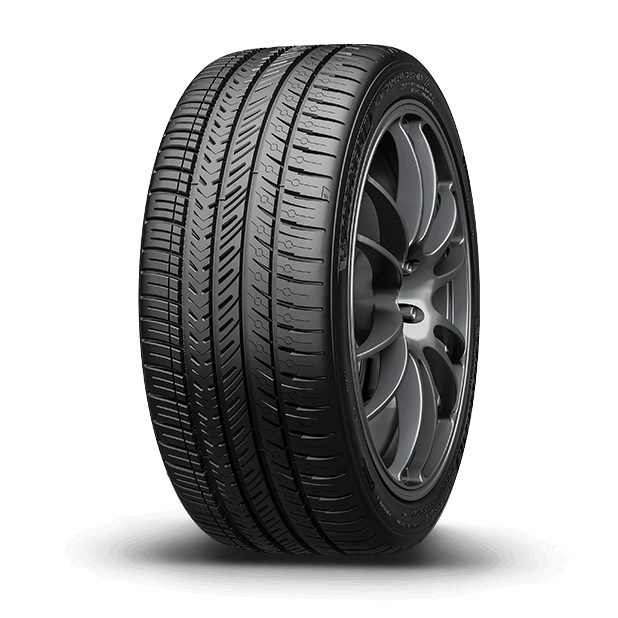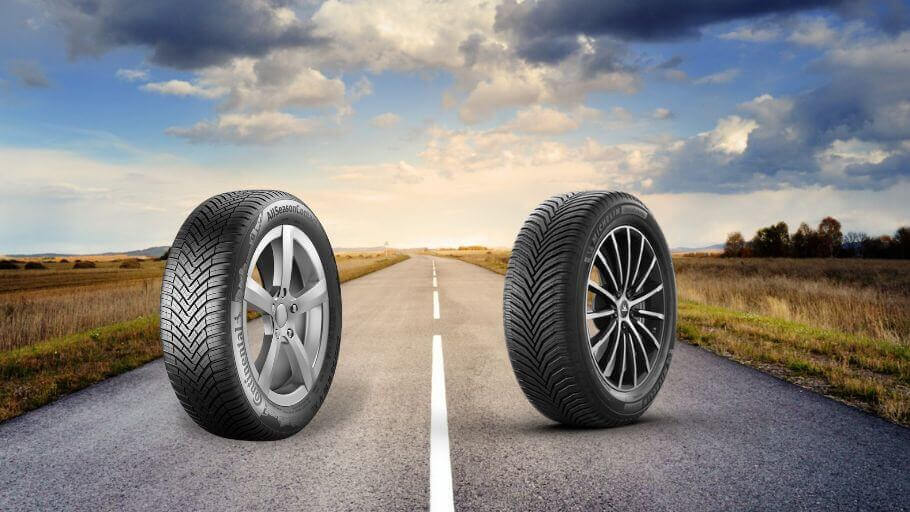Among the best tire brands in the world, Pirelli and Michelin are undoubtedly the most popular. Are you trying to choose between the French and the Italian brand? Want to know more about them?
Blackcircles Canada tells you all about their history and their technologies in this head-to-head match-up so you can make the right choice for your next tires.
A bit of history
When it comes to tire brands, Pirelli and Michelin are among the oldest, both with a history of over 133 years! Let's briefly go over their history in the industry.
Pirelli, established in 1872
The Pirelli brand was established in 1872 in Milan, Italy, by Giovanni Battista Pirelli. At first, the company was specialized in bicycle tires, and it wasn't until 1901, nearly 30 years later, that it designed its first tires for cars.
Success was quick to come: Pirelli immediately made a name for itself in motor racing with its first victory in the Peking-Paris race in 1907. The brand continued to grow, setting up factories in Great Britain and then in Argentina.
Following some problems related to the war and Mussolini's regime, the company bounced back and established itself in several countries:
- Canada
- Turkey
- Greece
- France
Its low profile P7 tire was introduced in the 1970s, followed in 1992 by the ultra low-profile P Zero. In the meantime, the company acquired two German brands, Veith and Metzeler.

The brand quickly became an official tire supplier for Superbike racing, and then for Formula 1 in 2010. Competition is in its DNA, and this shines through in its car tires, which deliver unbeatable responsiveness and handling at high speeds and when cornering.
 L'Almanach des Sports 1899, Public domain, via Wikimedia Commons
L'Almanach des Sports 1899, Public domain, via Wikimedia CommonsMichelin, established in 1889
The French brand was established a little over 15 years after Pirelli. It was founded by brothers Edouard and André Michelin in Clermont-Ferrand, France. The company also specialized in bicycles in its early days, but moved into automobiles earlier than Pirelli, in 1895. It actually designed the first car tire ever!
Michelin was a fierce competitor to Pirelli, and in fact moved to Turin before setting up its first factory in the United States. The brand was not idle during the First World War, as it equipped 2000 aircraft.
After planes came the trains: Michelin manufactured the first rail tire, designed for quieter travel. The first radial carcass would follow in 1946, as well as other innovations such as the first "green" tire in 1992, which used a silica compound.
More recently, the brand acquired well-known brands such as Uniroyal and BF Goodrich. The latter specializes in off-road driving.
Like Pirelli, Michelin has been a leader in motorsports, with 102 Grand Prix wins in its belt. So whether you choose Pirelli or Michelin, you'll enjoy the best tires in the business!
Innovations and Technology
The best tire brands are those that innovate, always striving to offer more. Let's see how Pirelli vs. Michelin distinguish themselves from the competition.
Pirelli Tires
Pirelli is always striving to innovate and create even better high-performance tires. This is precisely what earned Pirelli the 2013 Volkswagen Group Award and the Best Tire Supplier award for "Innovation and Excellence" at the Tire Technology Expo in Hamburg.
The brand is not only focused on performance, as it also incorporates technologies designed to reduce road noise, including the Pirelli Noise Canceling System. This system features a sponge that absorbs noise and vibrations for a comfortable and quiet ride.

To ensure a safe journey, Pirelli introduces the Run Flat and Seal Inside technologies so you can keep driving in case of a puncture. The Seal Inside technology consists of an inner liner that seals punctures automatically.
The Italian brand also offers advanced technologies such as Elect, a softer rubber compound that offers better performance for electric and hybrid vehicles, depending on the model. Cyber Tyre is yet another innovation, which links the tire to software integrated into the on-board computer to display information in real time.
Last but not least, Pirelli relies on a silica- and oil-based compound for maximum flexibility, while the tread is designed to maximize handling and traction in all conditions.

Michelin Tires
Like Pirelli, Michelin developed its own noise reduction technology called Michelin Acoustic Technology or PIANOp Acoustic Tuning, which is available on several models. Comfort Control minimizes both noise and vibration to provide a more comfortable ride.
At the top of Michelin's concerns is the durability of its tires, which is reflected in the development of new technologies such as Helio+. Helio+ technology improves the flexibility of the rubber by adding sunflower oil and silica gel. Eco'N'Grip, which reduces rolling resistance, also contributes to the durability of tires while maximizing their fuel efficiency.
In terms of performance, Michelin tires often outperform their rivals, especially in terms of shorter braking distances. This is thanks to their unique 3-D Stabiligrip technology, which features three-dimensional sipes that bite into the road.
On dry or wet pavement, on snow or ice, Michelin tires are always reliable and durable. There is also a trio of technologies designed to strengthen the carcass:
- Infinicoil
- Powercoil
- Duracoil
Michelin is always innovative, and this is just the beginning!
Prices and Warranties
Pirelli vs. Michelin are both premium tire producers, so you can expect to pay slightly more than the average price. Michelin tires, for their part, are slightly more expensive than Pirelli tires, with a price range that often starts above $200.
That being said, both brands offer more affordable models, such as Michelin's X-Ice line and Pirelli's PZero.
However, when it comes to warranties, Michelin' takes the lead. Both brands offer 6-year coverage on materials and workmanship from the date of manufacture, as well as a limited tread warranty, which varies by model.
In addition, Michelin offers a 60-day satisfaction guarantee ( compared to 30 days) as well as roadside assistance for 3 years (flat tire, fluid delivery, etc.).
In a nutshell, here's how Pirelli vs Michelin compare:
| Feature | Pirelli | Michelin |
|---|---|---|
| Founding Year | 1872 | 1889 |
| Origin | Italy | France |
| Coverage on materials and workmanship | Yes | Yes |
| Satisfaction Guarantee | 30 days | 60 days |
| Roadside assistance | No | 3 years |
| Price | High | Higher |
Equip your vehicle with new Pirelli tires or Michelin tires at the lowest price in Canada at blackcircles! If you need any help, don't hesitate to chat with our professionals online.







